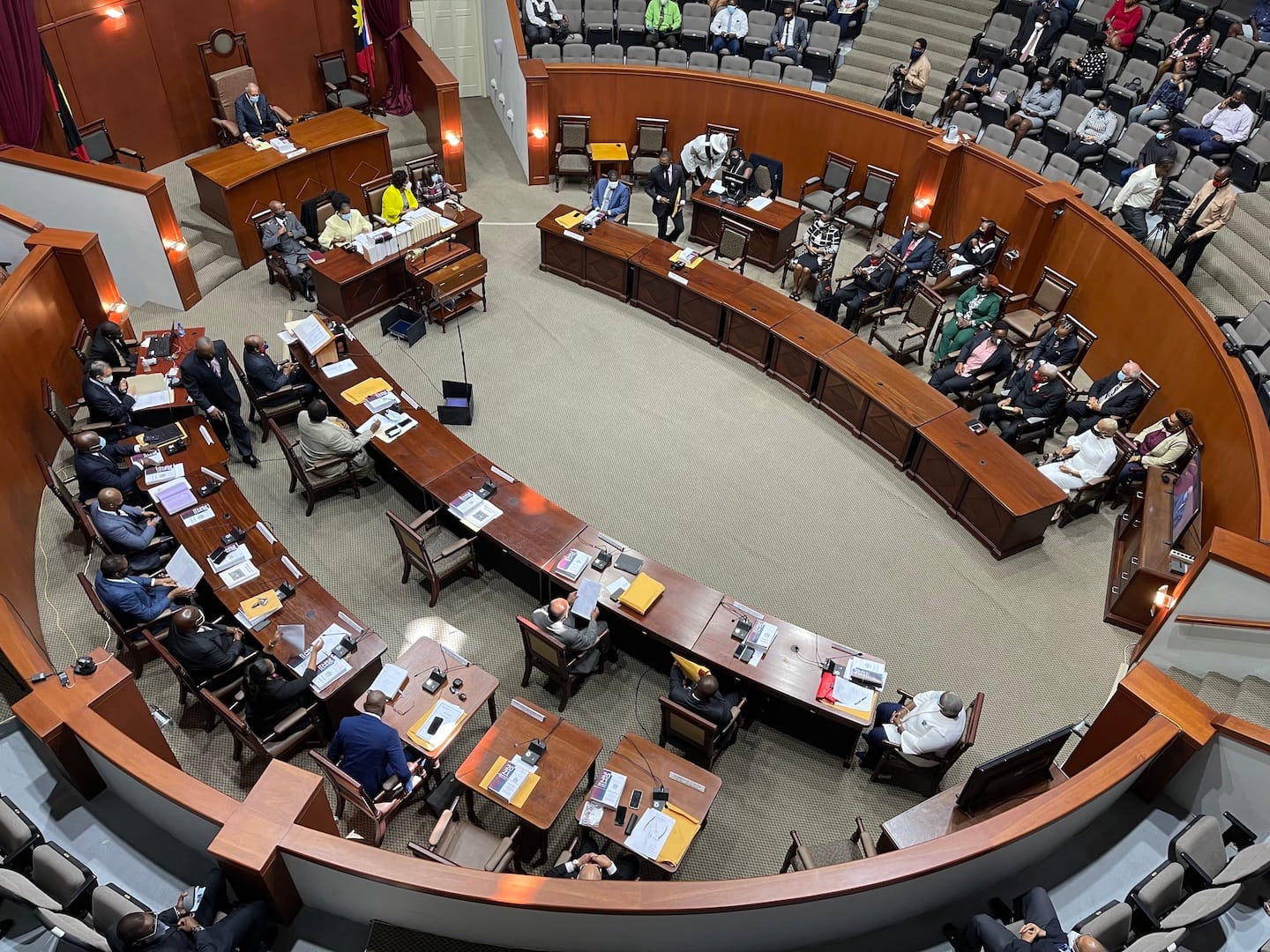
The Antiguan government is actively exploring avenues to boost revenue and cut expenses ahead of the upcoming National Budget presentation.
In a recent Cabinet meeting, 15 officials, including representatives from key departments, addressed revenue, deficit spending, and economic recovery.
The focus was on discussing budget options to raise the tax revenue to GDP ratio from 15% to 20%.
Topics included zero-rated and imported items, debt obligations to various organizations, property taxes, discontinuation of petroleum product subsidies, and cost reduction strategies for government vehicle fuel purchases.
The outcomes will contribute to the finance minister’s budget statement on December 15th in Parliament.
Advertise with the mоѕt vіѕіtеd nеwѕ ѕіtе іn Antigua!
We offer fully customizable and flexible digital marketing packages.
Contact us at [email protected]
















This is what you call COSULTATION. You talk to the stakeholders. The technical stakeholders. Not a townhall meeting with Tom Dick and Harry.
I hope the newly appointed Rasona Davis Crump can show what she is made of.
Because during the UPP time she was not creative at all to come up with solutions to our fiscal situation. She was one that applauded the UPP for going into an IMF program. I therefore hope that having worked for ten years now under the ABLP and in particular with Lennox Weston. That she would have learned some tricks and creativity as to how to keep the country afloat, especially during Covid-19.
I have some issues against the government when it comes to their lack of payment towards local creditors. Because in my opinion it stifles the economy. Paying overseas suppliers and lenders takes money out of our economy, while paying local vendors and lenders will stimulate the local economy.
I know government is cash strapped, and I also know that the accounting method use is called “Modified Cash Accounting”. which simply means that only certain items are recorded on an ‘Accrual’ basis. E.G. Government will disclose their local liability and overseas liability on their Financial Statement. But they will not disclose the outstanding Tax to be collected. And then at certain time for political reasons the Prime Minister writes off millions of dollars in property taxes. It would be better in my mind to offset the taxes with the liability. That way the government can lower their recorded liability. Government owes many local contractors and they in turn owe the IRD a lot in taxes. Note what I said. These unearned taxes are not recorded as Receivables on the balance sheet. But the Liability is. Bad accounting if you ask me. Another situation that I hope the PM addresses. The inter-government accounts. Many statutory and state owned companies are not paying each other, because they know that their are no consequences for that. E.g. A statutory company would make sure that they pay their mobile phone bills to Cable & Wireless or Digicel, but they would not bother paying APUA a dime. Knowing that if they get cut off the minister would call APUA to put them back on. Statutory Corporation and State Owned Companies are not paying their Statutory Contributions, yet their employees are getting all the benefits. While those in the private sector will not get the benefits if their employer doesn’t pay in their contributions.
These are lots of book entries that can take place to reduce the inter-government accounts. Whenever the government put money into AUPA it needs to be offset with some of its receivables. Thereby reducing the both the liability and the asset. And the Finance Ministry should have a team specifically looking at these inter government accounts. It could well be that some companies owe the government more then the government owe them.
Another point I would like to make to the government as they look for ways to increase revenues. They have exempted statutory corporations and State Owned Companies from paying ABST. Government should do an Audit to see how much money they are forfeiting by doing this. And if it is a sizable amount they may consider either a lower tax or withdraw the exemption completely. E.g. Digicel bills a statutory corporation. They do not charge them ABST, however Digicel on their import of the item pays ABST and therefore has that as an INPUT TAX on their ABST Remittance Form. This means the government loses to collect this tax as it is now deducted from the Digicel tax liability. This is merely an example, but the point is how much tax revenue the government is loosing by exempting the SC and SEC to not pay ABST.
Many SEC and SC do not pay each other. E.g. MBS does not pay Social Security, Social Security doesn’t pay MBS, and both do not pay APUA and APUA doesn’t pay them. We need to keep these receivable and payable in check. We cannot let this go on and on for years without proper reconciliation. The FS needs to establish a department that does only thar. reconciling inter-governmental accounts. And at year-end we need to pass either checks or entries in all the books. Given that the all the companies have one thing in common which is the central government we need to have all these entries come to one account either owed or owing to government and not to each other. E.g. Social Security may owe APUA millions of dollars and Government may owe Social Security million of dollars. If your re-allocate both entries to government the picture may be completely different. And we could see whether the in the books of Social Security the Government owes Social Security and how much or Social Security owes the government and how much. There is a lot of book entry that can be done to reduce and bring into better perspective who owes who.
Comments are closed.